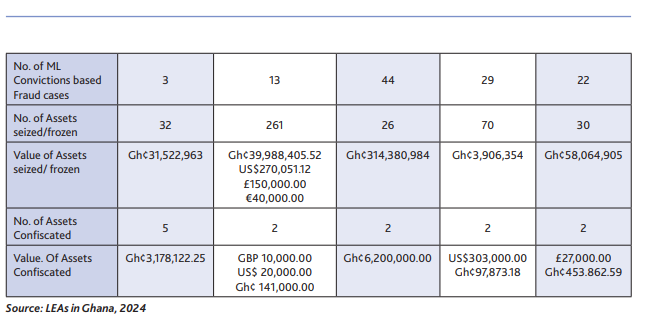
The Financial Intelligence Centre (FIC) has expressed worry about the threats Money Laundering (ML) poses to Ghana’s economic stability and integrity.
According to the FIC, the country has become a target for illicit financial activities due to its strategic location in West Africa and the growing complexity of its financial system.
“Various predicate offences, including drug trafficking, corruption, fraud and organised crime, contribute to the ML landscape. The financial sector, real estate sector and informal markets are particularly exposed to these ML threats. Additionally, cross-border activities, including the use of shell companies and international remittances, obscure the detection and prevention of ML”, it disclosed in the 2025 AML Report.
Consequently, it stated that the Government of Ghana, together with various Law Enforcement Agencies (LEAs) and competent authorities, continues to make strides in enhancing its Anti-Money Laundering, Countering the Financing of Terrorism, and Proliferation Financing (AML/CFT/CPF) framework to mitigate the risks associated with these illicit activities.
Fraud
Fraud is one of the predicate offences of Money Laundering (ML) that remains a pervasive issue in Ghana, with various fraudulent schemes targeting individuals and businesses across different sectors.
Defined by the Criminal Offences Act, 1960 (Act 29), as amended, fraud involves forgery, falsification or other unlawful acts intended to defraud.
From 2019 to 2023, the FIC investigated 27,043 fraud cases, charged 635 culprits with ML, prosecuted 531, and successfully convicted 111 cases.


According to the report, the above data indicates a significant decrease in fraud offences investigated in Ghana from 2019 to 2023.
This decline was due to improved preventive measures, effective legislation, increased public awareness, technological advancements, collaborative efforts, proactive compliance and reduced opportunities for fraud.
However, the number of fraud cases prosecuted increased from 2019 to 2022 due to interagency collaboration and targeted trainings to the LEAs and judiciary.